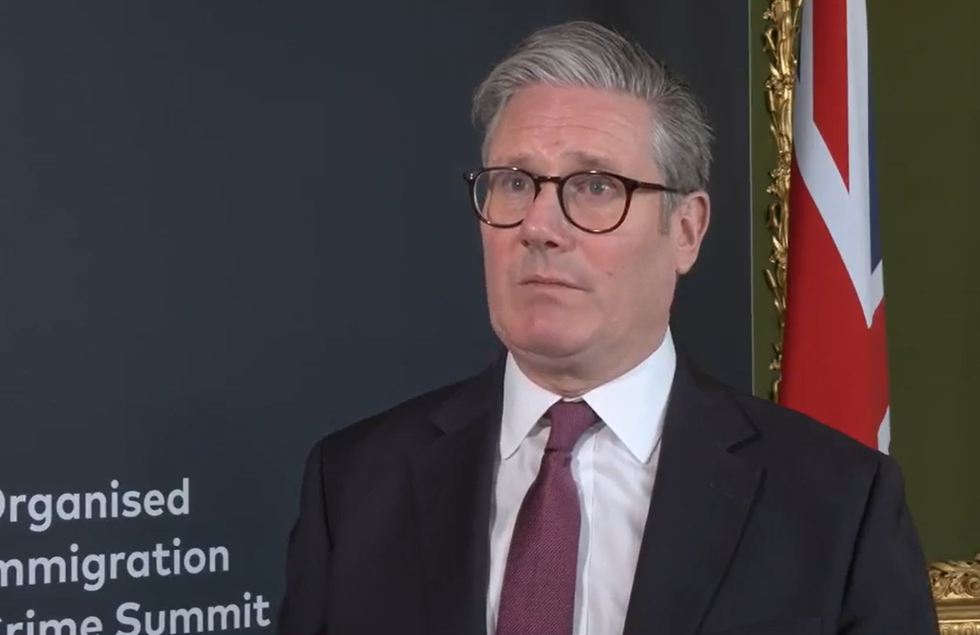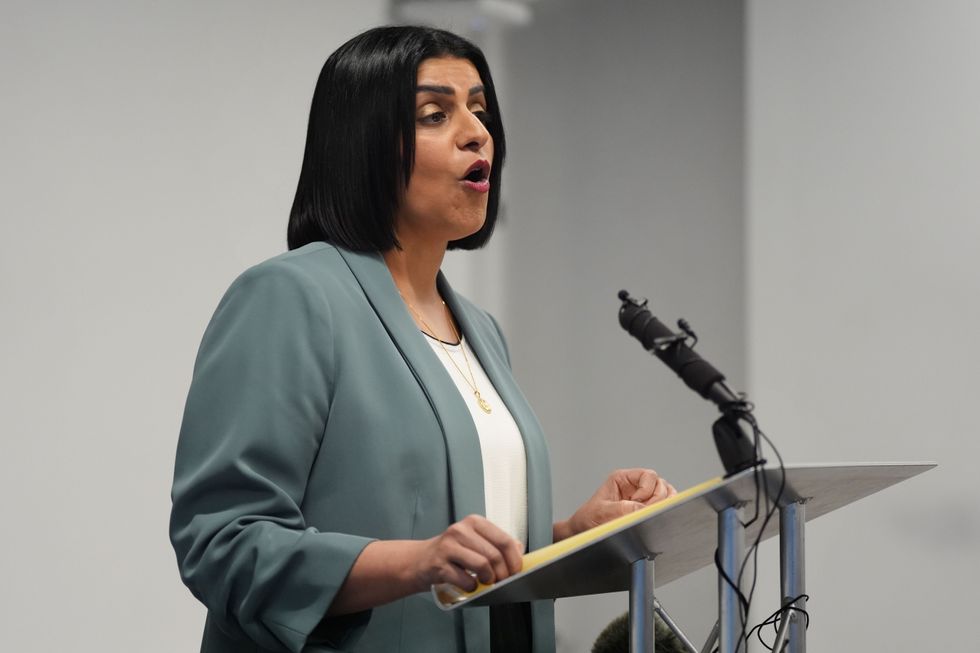WATCH NOW: Keir Starmer to pass emergency law to STOP new two tier sentencing rules
GB News
The Prime Minister vowed to 'fast-track' the legislation to stop the controversial rules in its tracks
Don't Miss
Most Read
Sir Keir Starmer has confirmed he is looking to pass emergency legislation to stop two-tier sentencing rules which discriminate against white men.
The controversial guidelines, which are due to take effect from tomorrow, require magistrates and judges to consult a pre-sentence report before ruling whether to imprison someone from an ethnic or religious minority.
"We will fast track it," the Prime Minister unequivocally told GB News.
The emergency legislation comes after public outcry at the new sentencing guidelines which hand out tougher rulings to straight, white men.

The Government is due to pass an emergency law to stop two tier sentencing rules which discriminate against white men, the PM told GB News
GB News
GB News understands that the MoJ is set to suspend the "two tier" sentencing guidelines tonight.
Downing Street has confirmed that a law circumventing the guidelines will be published on Tuesday but it will not be in force until after Easter.
No 10 sources say fast track legislation will be published tomorrow but it is unlikely to be in force before Easter as it will not have cleared both Commons and Lords.
Legislation is only being introduced “as a last resort” says PM’s official spokesman.
Under the guidelines, ethnic minority, transgender and female criminal suspects are among those set to be prioritised for bail under the latest Sentencing Council guidelines.
Judges and magistrates had been instructed to "prioritise" women and minority groups since they might be at a "disproportionately higher risk" of being remanded into custody.
Hitting out at Labour, Shadow Justice Secretary Robert Jenrick dubbed the guidance "two-tier justice", lambasting the "blatant bias" against both white men and Christians.
'TWO-TIER' BRITAIN - READ MORE:
- 'Persecuting his own people!' Keir Starmer blasted over incoming 'two-tier' sentencing guidelines as council REJECTS Labour plea
- 'Two-tier' justice plans drawn up by MoJ as judges told to 'prioritise' ethnic minorities for bail
- 'Wrong and unfair!' Robert Jenrick fumes as 'two-tier' justice coming to UK in JUST HOURS: 'Must be stopped'
Speaking to GB News this morning, Jenrick said: "In 16 hours' time, we will have a two-tier justice system in this country because biased sentencing guidelines will come into force, which discriminate against white people, men, and Christians.
"We have been raising this issue repeatedly in the House of Commons, in the media, and on GB News, asking the Government to act. We brought forward a bill, but they rejected it."
Last week, Justice Secretary Shabana Mahmood was shot down by the quango - which is responsible for the new guidelines - as she made a bid to amend the guidance.
In the wake of her rejection, Mahmood said: "I have been clear in my view that these guidelines represent differential treatment, under which someone's outcomes may be influenced by their race, culture or religion.
"This is unacceptable, and I formally set out my objections to this in a letter to the Sentencing Council last week.

Justice secretary Shabana Mahmood was shot down by the Sentencing Council when she attempted to change the guidance
PA
"I am extremely disappointed by the council's response. All options are on the table and I will legislate if necessary."
Echoing his Cabinet colleague, Starmer said that he felt "disappointed" with the Sentencing Council's decision to shrug off the Ministry of Justice, and has reiterated that "all options were on the table" over ways in which the Government might respond.
The Prime Minister will look to table legislation this week to "surgically" remove the most contentious parts of the new guidelines, a Whitehall source has claimed.
The same insider disclosed that the new law would "be very focused on the specific guidelines and specifically the bits we don't like about them".
A spokesman for the MoJ said: "These guidelines were first brought in under the last Government. This Government will ensure equality in the courts. We are reviewing current policy that impacts the courts, and will be updating practices accordingly."












